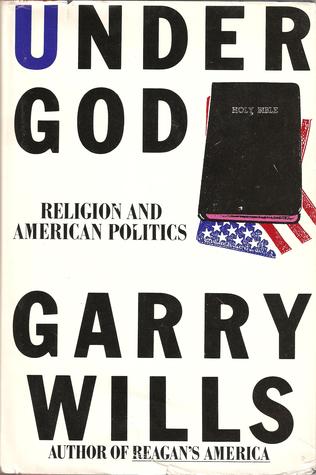Garry Wills is, of course, the talented apostate conservative whose interpretative political reporting avoids the usual journalistic cliches. No one will disagree that Wills penetrates events more deeply than do, say, the editorial writers for the New York Times, any more than he will deny that Wills’ insight and wit are broadly in service to the social agenda promoted by the Times.
A charitable (if somewhat patronizing) impression shared by certain of his fellow Catholic intellectuals who knew him when is that Garry Wills is rather a bad boy who writes more to impress than to clarify. The consensus seems to be: Of course Garry is puckishly clever, sometimes even outrageous. But his heart is finally in the right place, you know. My own impression is that heart is what Garry Wills’ latest book conspicuously lacks, as do the books of every other solipsist. And this, I believe, is why the man’s well-exercised ingenuity takes printed shape largely as vox et praeterea nihil. That is, an illusion of substance and sense, though of a kind with capacity for mischief, like the voice of Tolkien’s Saruman. About which more will follow.
Under God is a digressive jumble that commences with a spanking delivered to his materialist friends in the news media, in academe, and especially in politics, with specific reference to the 1988 presidential campaign. What Wills accurately points out to these types is that their purblindness to spiritual things is so far out of the American mainstream as to be politically costly to them. As Wills demonstrates of the election that became the Democrats’ most recent national disaster, Michael Dukakis really had no chance to ride to the White House on the back of those bony managerial skills he advertised.
“The Duke’s” absorption in pragmatism, for instance, precluded his foreseeing—and, in the aftermath, his understanding—the widespread odium provoked by his confession that he was a “card carrying member” of the American Civil Liberties Union. To Michael Dukakis, the ACLU is merely a civic group busy securing the good things its name suggests. But to Americans at large this outfit is the spearhead of a militantly anti-religious (more nearly, a militantly anti-Christian) thrust. And that this view is not entirely without reason, Wills acknowledges by pointing out how the ACLU “as a whole has tried to prevent religious groups from meeting in schools under the provisions of the equal-access bill passed by Congress in 1985, which allows extracurricular clubs, even those that study the Bible, to use the same facilities that bird-watchers and ham radio operators do.” Carping over such minutiae is bad politics, Wills hints. (By the way, someone should tell Garry Wills about that 8-1 vote, appropriately announced last July Fourth, by which the Supreme Court upheld the Equal Access Act.)
Under God isn’t mainly about the ACLU, as I’ve seemed above to indicate it is. What this book does is take the big political players in the 1988 race, those in the primaries as well as the two finalists, and analyze their religious backgrounds (or lack thereof) as those backgrounds showed up in behavior on the hustings. The author likewise comments on public reaction to that behavior.
The book reaches two main conclusions. Wills’ intended coup de grace at the end of the book draws on passages from Jefferson and Madison, picked to show that the Framers originally intended to build some more or less solid barrier between church and state. To be sure. Wills includes qualifiers here. But readers will notice he shows no embarrassment in slighting the contrary evidence, both massive and widely known. Garry Wills’ other conclusion is the hortatory one I’ve already noted. The thrust is; My secularist friends, it’s tactically unsound to surrender the religious high-ground to the right wing. Religion can be co-opted as a real force for Progress, provided you’re only willing to hold your nose and pretend to like it. Look at the abolitionists and the women’s rights movement. Look at religious opposition to the Vietnam War and nuclear weapons. Look at church agitation for social justice. Why, a dab or two of the not-so-Old Time religion can butter your political bread quite nicely.
In Under God Garry Wills twice refers to Origen, the learned Christian writer and heretic of the third century, and it occurs to me that Garry Wills resembles Origen in some conspicuous ways. Like Origen, Garry Wills is a skilled (indeed, a determined) dialectician with opinions on everything. With many of these he grows so smitten as repeatedly to get carried off on wings of shiny theory and novelty. Because, again like Origen, Wills can’t (at least, he too often doesn’t) balance the dialectical mode with concern for givens, he imagines, insolently, that mere reason and some broad reading qualify him, as noted above, even to theologize, something he undertakes with apparent eagerness.
Don’t misunderstand me. I leave it to Rome and the Romans to determine who their Catholic heretics are. But in regard to the ongoing Kulturkampf in America, which Garry Wills blames the so-called Religious Right for provoking against the pro-abortion crowd, the pornography lobby, and the rest of the organized anti-family movement, on whose side he makes war with crafty words, the man is a heresiarch; as this tissue of half-truths and outright errors he wove as Under God makes so clear.
[Under God: Religion and American Politics, by Garry Wills (New York City: Simon and Schuster) 445 pp., $24.95]

Leave a Reply